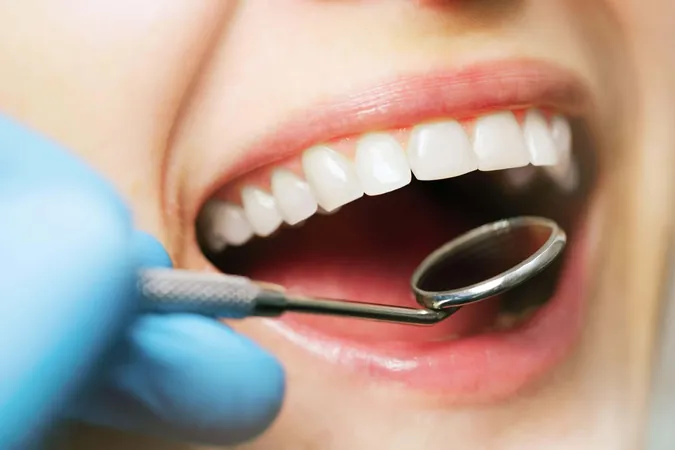
Revolutionary Breakthrough: Scientists Grow Human Teeth in Lab for the First Time!
2025-04-13
Author: Lok
A Groundbreaking Discovery in Dentistry
In a stunning breakthrough, scientists have successfully grown human teeth in a laboratory setting for the very first time, a recent study reveals!
Say Goodbye to Fillings and Implants!
Researchers from King's College London believe this significant advancement could mean the end of traditional dental solutions like fillings and implants, paving the way for patients to potentially regenerate their own lost teeth.
Creating a Tooth from Scratch
The research team developed a unique material that simulates the natural environment essential for tooth growth, allowing cells to communicate and initiate the formation of a tooth. Dr. Ana Angelova-Volponi, the director of regenerative dentistry at King's College, emphasizes that this research could "revolutionize dental care."
Why Can’t Humans Regrow Teeth?
Unlike some animals, including sharks and elephants, that can regenerate teeth throughout their lives, humans are limited to a single set of adult teeth. The ability to regenerate teeth could represent a monumental advancement for dental health, offering hope for those suffering from tooth loss.
The Benefits of Lab-Grown Teeth
What sets lab-grown teeth apart from conventional implants and fillings? These innovative teeth, developed from a patient's own cells, promise to integrate into the jaw and possess the ability to repair themselves much like real teeth do. This could eliminate many of the long-term problems associated with current dental solutions.
Researcher Xuechen Zhang points out that existing treatments often weaken tooth structure, have limited lifespans, and can provoke additional decay over time—issues that lab-grown teeth aim to overcome.
What’s Next for Tooth Regeneration?
The groundbreaking study—more than ten years in the making and a collaborative effort with Imperial College London—faces significant challenges ahead. Previous attempts to replicate this process in labs stumbled as cells failed to communicate effectively. However, researchers are now exploring two promising strategies: growing a complete tooth in the lab for later implantation or placing early-stage tooth cells directly into the patient's jaw, where they can continue to develop.
Zhang explains that transplanting young tooth cells right at the missing tooth's location could allow for natural growth inside the mouth, while developing a complete tooth in the lab presents another exciting avenue.
A Bright Future for Dental Health
Dr. Angelova-Volponi concludes, "As this field advances, integrating such innovative techniques could revolutionize dental care, providing sustainable and effective solutions for tooth repair and regeneration." Watch out, dental world—regenerated teeth might just be around the corner!






 Brasil (PT)
Brasil (PT)
 Canada (EN)
Canada (EN)
 Chile (ES)
Chile (ES)
 Česko (CS)
Česko (CS)
 대한민국 (KO)
대한민국 (KO)
 España (ES)
España (ES)
 France (FR)
France (FR)
 Hong Kong (EN)
Hong Kong (EN)
 Italia (IT)
Italia (IT)
 日本 (JA)
日本 (JA)
 Magyarország (HU)
Magyarország (HU)
 Norge (NO)
Norge (NO)
 Polska (PL)
Polska (PL)
 Schweiz (DE)
Schweiz (DE)
 Singapore (EN)
Singapore (EN)
 Sverige (SV)
Sverige (SV)
 Suomi (FI)
Suomi (FI)
 Türkiye (TR)
Türkiye (TR)
 الإمارات العربية المتحدة (AR)
الإمارات العربية المتحدة (AR)